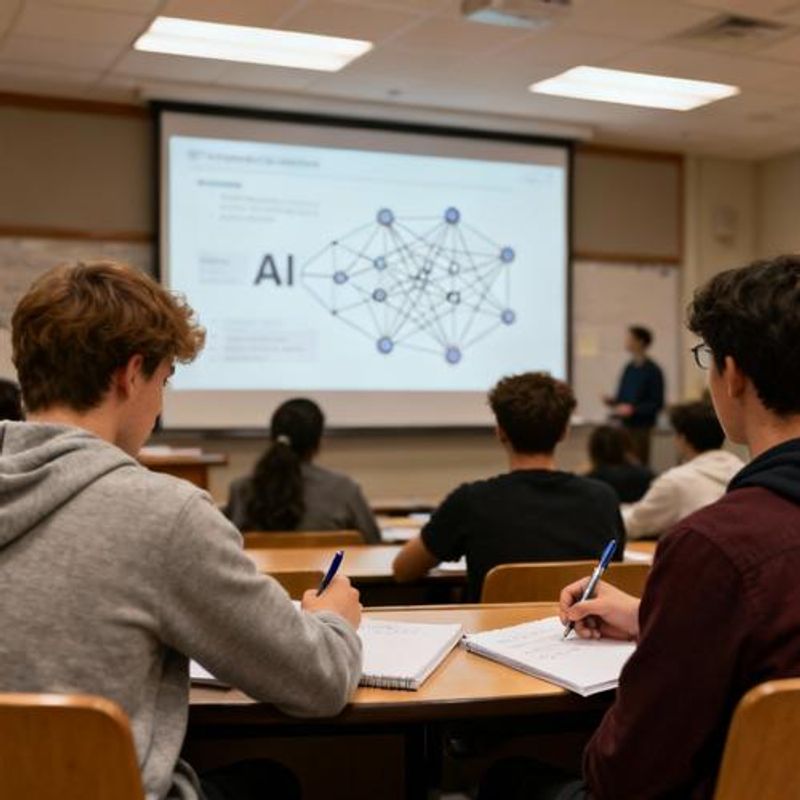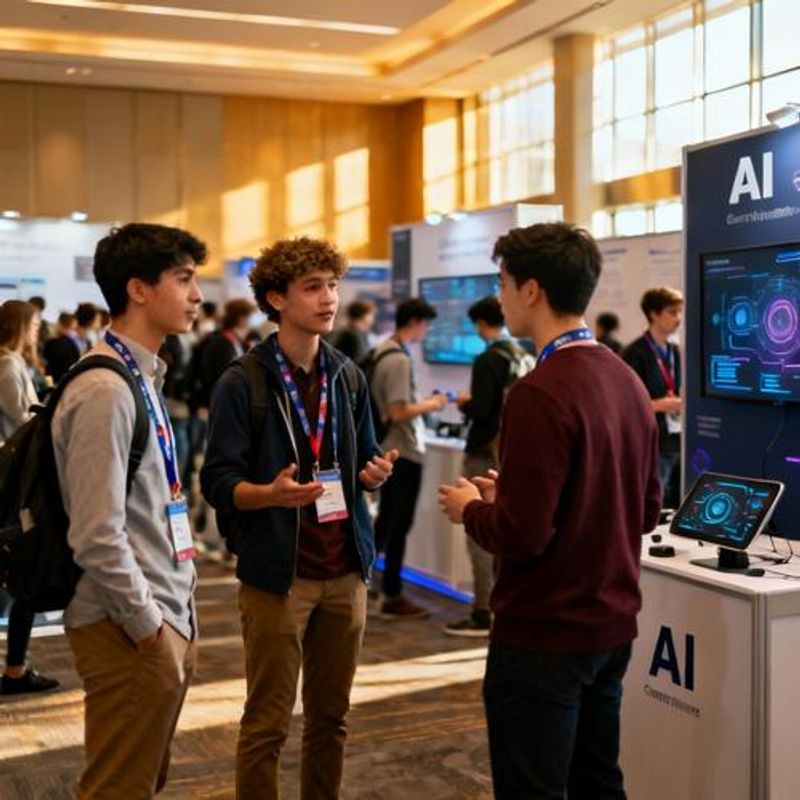Complete Guide to AI Association for Students: Building Networks and Advancing Your Tech Career

Joining an AI association as a student can transform your academic journey and career prospects. This comprehensive guide reveals how to find, join, and maximize your involvement in AI communities that offer networking opportunities, skill development, and direct pathways to internships and jobs in the rapidly growing artificial intelligence field.

Why AI Association Membership Matters for Students
The AI industry faces a significant talent shortage, with over 2.3 million unfilled positions globally. Students often struggle to bridge the gap between theoretical coursework and practical industry experience. AI associations serve as crucial intermediaries, providing hands-on projects, mentorship from industry professionals, and access to cutting-edge research that textbooks can't offer. Whether you're studying computer science, engineering, or even liberal arts with an interest in AI ethics, these communities offer pathways to meaningful careers in artificial intelligence.
Key Benefits at a Glance
Before diving deep, here are the main advantages of AI association membership:
- Direct access to internship and job opportunities through industry partnerships
- Hands-on project experience with real-world datasets and challenges
- Mentorship from senior students and industry professionals
- Free or discounted access to conferences, workshops, and certification programs
- Portfolio development through collaborative projects and competitions

Types of AI Associations for Students
Understanding different types of AI associations helps you choose the right fit for your goals and current skill level.
University-Based AI Clubs
Most universities now host AI or machine learning clubs that organize weekly meetings, guest lectures, and coding competitions. These groups typically welcome beginners and offer structured learning paths. Examples include MIT's Artificial Intelligence Club and Stanford's AI Society. These clubs often partner with local tech companies for project sponsorships and recruitment events.
Professional AI Organizations
Organizations like the Association for the Advancement of Artificial Intelligence (AAAI) and IEEE Computer Society offer student memberships at reduced rates. These provide access to research publications, industry reports, and global networking opportunities. Student members can attend conferences, participate in research competitions, and access online learning resources.
Regional and Local AI Communities
Meetup groups, hackathon communities, and regional AI societies offer more informal networking opportunities. These groups often host monthly events, workshops, and social gatherings that connect students with working professionals in their area.
Step-by-Step Guide to Joining and Maximizing AI Association Benefits
Follow this actionable roadmap to make the most of your AI association membership:
Step 1: Research and Identify Target Associations
Start by checking your university's student organization directory for AI-related clubs. Use platforms like Meetup, Eventbrite, and LinkedIn to find local AI communities. Research professional organizations by visiting their websites and reading about student membership benefits. Create a shortlist of 3-5 groups that align with your interests and career goals.
Step 2: Attend Events Before Committing
Most groups welcome visitors to their events. Attend 2-3 meetings or workshops to assess the community culture, skill level, and opportunities available. Pay attention to how welcoming they are to newcomers and whether the content matches your learning objectives.
Step 3: Join Strategically
Rather than joining every available group, focus on 1-2 organizations where you can actively participate. Quality engagement beats passive membership in multiple groups. Complete the membership process, join their communication channels (Discord, Slack, or mailing lists), and introduce yourself to other members.
Practical Examples and Success Templates
Here are proven strategies that successful student members use to maximize their AI association experience:
The Project Portfolio Strategy
Join project teams within the association to build tangible portfolio pieces. One computer science student at UC Berkeley joined their AI club's computer vision project team, contributing to an open-source medical imaging tool. This project became the centerpiece of their internship applications, leading to offers from three major tech companies.
The Teaching and Leadership Path
Volunteer to lead workshops or study groups on topics you're learning. Teaching others reinforces your own knowledge while establishing you as a knowledgeable community member. Create beginner-friendly tutorials, organize study sessions for difficult concepts, or mentor newer members.

Common Mistakes to Avoid
Learn from these frequent missteps that limit students' success in AI associations:
Passive Membership
Simply attending meetings without participating in projects or discussions limits your growth and networking opportunities. Actively engage by asking questions, volunteering for tasks, and contributing to group projects.
Overcommitting to Multiple Groups
Joining five different AI associations might seem impressive, but spreading yourself too thin prevents meaningful involvement. Focus on 1-2 groups where you can make substantial contributions and build strong relationships.
Neglecting to Follow Up
Meeting industry professionals at events is just the first step. Many students fail to send follow-up emails or LinkedIn connections, missing opportunities to build valuable professional relationships.
Your Next Steps in AI Association Involvement
Start your AI association journey today by researching groups at your university and in your local area. Attend one event this month to get a feel for the community. Remember that the most successful students treat association membership as an investment in their future careers, not just another extracurricular activity. The connections you make and skills you develop through these communities often prove more valuable than classroom learning alone. Take the first step by visiting your university's student organization website or searching for local AI meetups in your area.